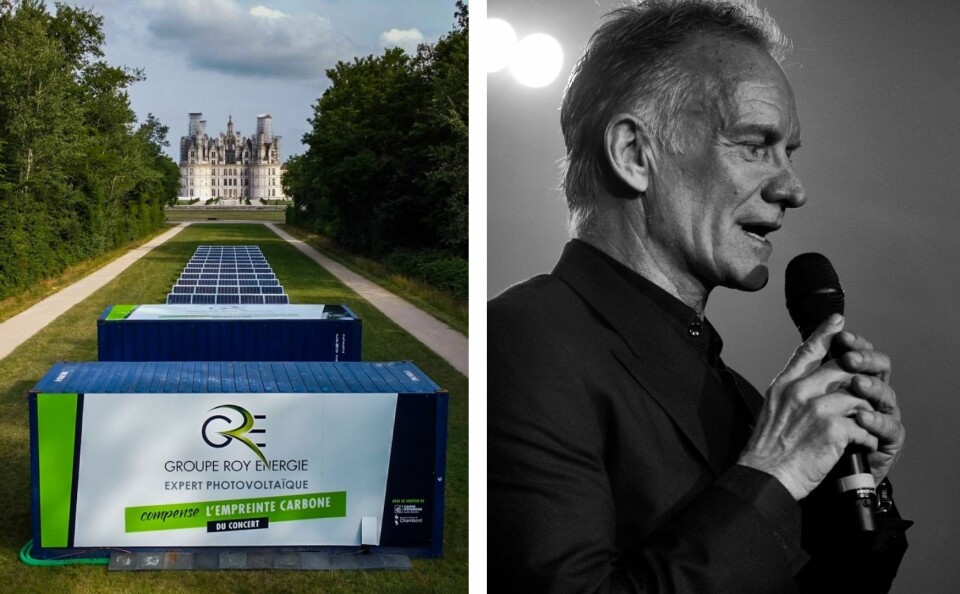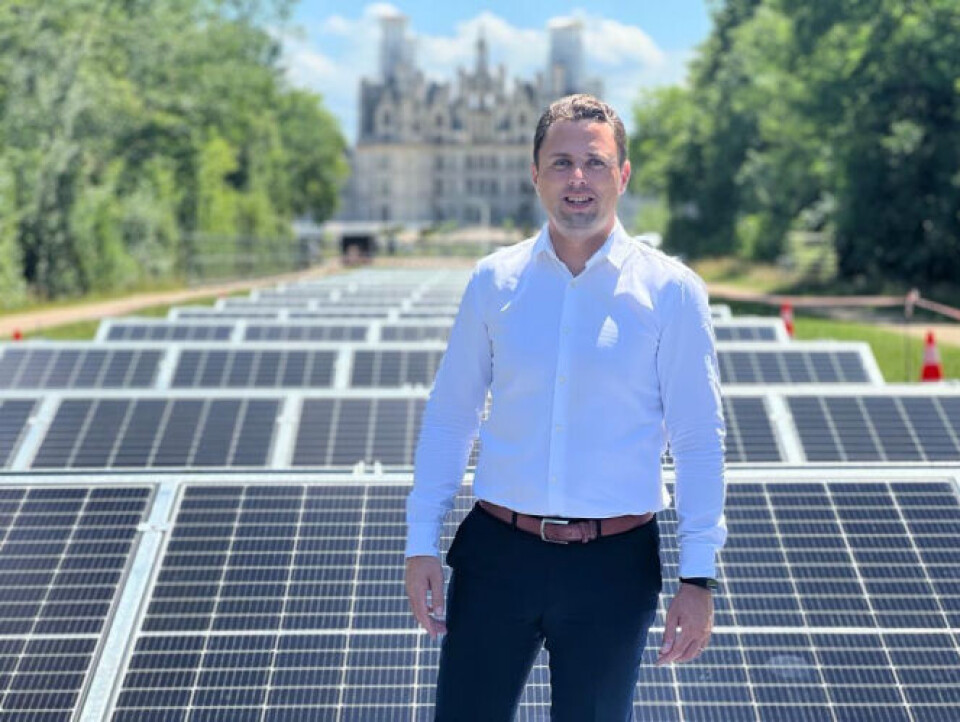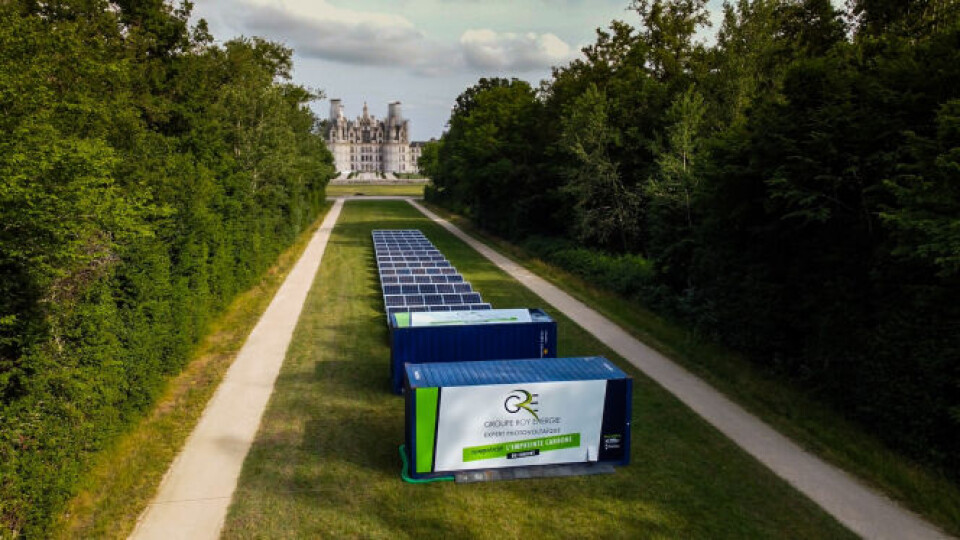-
How to dispose of your Christmas tree in France in 2026
Dumping an old tree on the pavement, in a park or in woodland is illegal, and can result in a fine
-
More than a quarter of new car registrations in France are electric
EV sales hit new record in November 2025
-
The origins and meaning of tirer les marrons du feu
As Christmas approaches, we look at a phrase to describe someone who takes advantage of a situation
French firm says solar power test at Sting chateau concert a success
The mobile solar generators are still being developed but should soon be able to power a whole concert

A French firm developing mobile solar electricity generators tested a prototype at a concert given at a Loire chateau by Sting earlier this summer.
Big outdoor concerts and film sets require a lot of electricity, usually provided by diesel-burning generator lorries capable of turning out 110 kWh.
The solar panels set out at the Château de Chambord (Loir-et-Cher) for the concert produced 55 kWh and the company Roy Énergie, which is based in Orléans (Loiret), is developing modules which will produce 75 kWh.
“Our electricity was not used for the concert because our partner promoter had to be absolutely certain of the power supply, but the test was run as if it was and went very well,” Roy Énergie’s Romain Roy told The Connexion.
“The electricity produced was sent to the grid to compensate partially for the CO2 produced by the lorries.
“We are now analysing all the data to see how things went and we will use it as we move towards our production model, which will be more powerful and also be able to be set up on site without any heavy machinery.”

Credit: Roy Énergie
To provide for concerts which go on after dark, the company is designing a hydrogen option, where surplus electricity produced during daylight hours is used to make hydrogen, which is then used by a fuel cell at night.
“Batteries are very heavy and do not provide enough continuous power for events like concerts,” Mr Roy said.
The commercial generating model should be ready by 2024, and will probably cost between €100,000 and €150,000, about the same as a lorry mounted generating set, “but without the cost of the hundreds of litres of diesel burnt during a concert,” said Mr Roy.
Sting, who has spoken out in favour of environmental initiatives, was not involved in the solar power test, which was instead inspired by a conversation Mr Roy had with the promoters and organisers of the concert, AZ Prod.
“We are both local firms and interested in what the others are doing,” he said.
“It was an ideal occasion for the test of the prototype we have been working on for three years.”
As well as concerts he hopes the mobile generators will also find a use for disaster relief teams.

Credit: Roy Énergie
“They are lighter than diesel generators, allowing more equipment to be carried in the aircraft with them,” he said.
“Also they will not need heavy equipment to be installed, and not have to have a continual supply of diesel like the generators they use at the moment.”
Another use could be to provide domestic electricity to homes situated off the electricity grids.
“This sort of initiative will not make us much money, if any, for quite a while,” said Mr Roy.
“But by showing that you can have a premium electricity generator at a competitive price we see ourselves helping to democratise the use of photovoltaic power and show that it is accessible to everyone.”
Related articles
France sets new peak solar power output – but not due to heatwave
EDF nationalisation is end of bumpy ride for French investors
Home heating system uses ‘sunshine’ paint invented in France
























